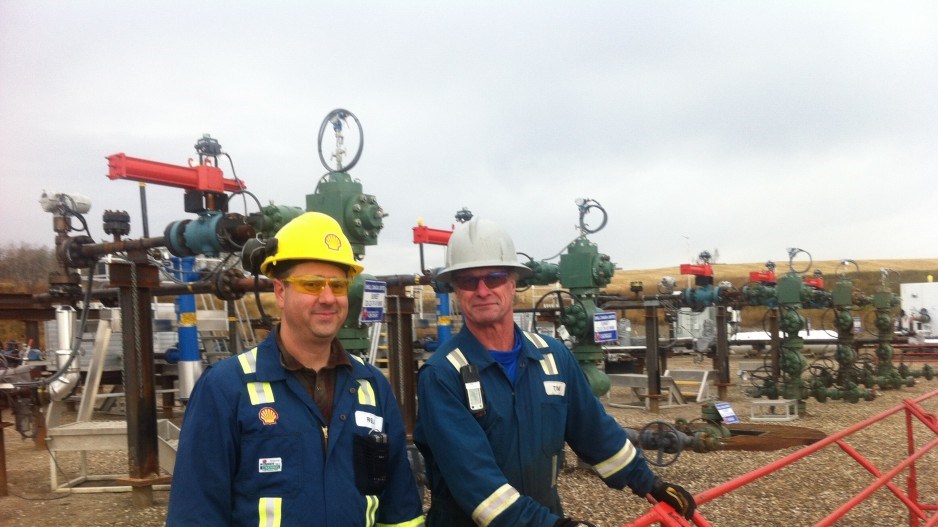The Trudeau government’s new federal emissions cap on oil and natural gas production will cost the Canadian economy roughly $6 billion a year, according to the Montreal Economic Institute (MEI), and intensify a constitutional war between Ottawa and Alberta, according to Alberta Premier Danielle Smith.
Given that B.C. proposes its own provincial emissions cap for oil and gas, it’s not clear yet what impact the new federal caps will have on B.C.’s LNG and natural gas sector.
Today, federal Environment Minister Steven Guilbeault announced that -- in addition to a carbon tax set to hit $170 per tonne by 2030, and federal methane regulations for the oil and gas sector that require reductions of 75 per cent below 2012 levels by 2030 -- his government will also implement a cap and trade scheme for the oil and gas sector that will require oil and gas producers to reduce emissions by about one-third or pay a penalty.
Under the new scheme, the federal government would cap 2030 emissions at 35 to 38 percent below 2019 levels, "while providing compliance flexibilities to emit up to a level about 20 to 23 percent below 2019 levels."
B.C.’s own proposed provincial cap for oil and gas calls for a 33 to 38 per cent reduction below 2007 levels by 2030.
Since there’s no way oil and gas producers can actually achieve those kinds of emissions reductions in such a short timeframe, the government would allow them to pay a penalty in the form of carbon credits for exceeding their limits.
It's unclear what impact the new caps would have for B.C. nascent LNG industry. A spokesperson for LNG Canada said the company will evaluate the new regulations.
"Reducing industrial emissions can support Canada’s supply of low-carbon competitive and sustainable resources and help achieve climate targets, but it must be done in a way that maintains industrial competitiveness with other jurisdictions, mitigates carbon leakage and creates a long-term, predictable policy pathway," an LNG Canada spokesperson said in a written statement to BIV News.
"At the same time, limited compliance options will constrain the value chain’s ability to deliver GHG reductions."
In a joint statement, provincial ministers of Environment and Energy George Heyman and Josie Osborne generally welcomed the federal emissions cap announcement, saying they were "pleased" with the federal plan.
"We will review the details of the federal framework and we will continue our discussions with the federal government to ensure we meet our stated goals for the sector, and to avoid unnecessary duplicate regulations as we implement our cap," they said in a written statement.
“This emissions cap will finally prompt oil and gas companies to divert record profits into major investments in decarbonization,” said Janetta McKenzie, acting director of the oil and gas program at the Pembina Institute. “Existing policies are not enough.”
“Canada should be commended for putting in place the world’s first national oil and gas emissions cap by a major fossil-fuel-producing country," said Mark Zacharias, executive director at Clean Energy Canada. "The cap is the last line of defence to ensure that emissions from Canada’s fossil fuel industry don’t put the country offside its climate commitments."
The Canadian Association for Petroleum Producers (CAPP) says the new caps will effectively be a cap on production.
“Despite the federal government’s stated objective that the emission cap should not put a limit on Canadian oil and natural gas production, the unintended consequences of the draft framework announced today of a cap-and-trade system with an interim target of a 35 per cent to 38 per cent emissions reductions below 2019 by 2030 could result in significant curtailments - making this draft framework effectively a cap on production,” said CAPP president Lisa Baiton.
“The federal government’s emissions cap will hinder Canada’s ability to attract capital,” said Mark Scholz, president of the Canadian Association of Energy Contractors. “It means higher energy costs and fewer jobs for Canadian energy workers It means higher energy costs and fewer jobs for Canadian energy workers.”
The MEI estimates the new federal cap and trade scheme will cost the Canadian economy $6 billion.
“Each time Ottawa forces the Canadian energy sector to contract, it is foreign producers who win,” said MEI public policy analyst Gabriel Giguère. “Ottawa does not have the means to affect global demand, so reducing local supply will only end up exporting jobs and tax revenues.
“Whether a tonne of CO2 is emitted during the production of a barrel of oil in Alberta, or the manufacture of an automobile in Oshawa, its impact on the climate is the same. By targeting the Canadian energy sector, the Trudeau government seems to be engaging in an ideological crusade rather than introducing a policy based on the facts.”
Alberta Premier Danielle Smith said the federal emissions cap amounts to “an intentional attack” on Alberta and will simply be added to the growing list of things Alberta will resist, as it develops “a constitutional shield” against federal policies.
So far, there has been no response to the federal cap from B.C. government leaders. Federal climate policies, like carbon taxes, have generally aligned with B.C.'s own provincial policies.



